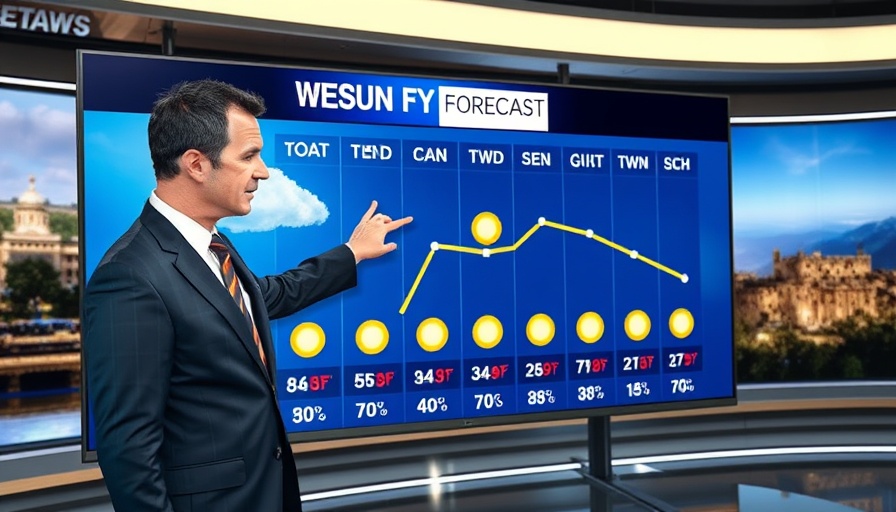
COVID-19 Vaccine Access: Understanding the Changing Landscape
As state governors across the United States take significant strides to ease access to COVID-19 vaccines, particularly as they await federal recommendations, the healthcare landscape is experiencing an important transformation. With the complexities surrounding the availability of vaccines, particularly as federal guidelines have shifted, understanding the actions being taken at the state level becomes critical for many communities.
Why State-Level Action Matters
In 2025, unlike the previous years of the pandemic, the federal government has not recommended COVID-19 vaccines for the general populace this year, causing confusion and barriers to access. In a bid to counteract these challenges, governors in states such as Arizona and Maine have taken proactive measures, issuing orders to facilitate vaccine access. Such actions are not merely administrative; they are crucial in ensuring the health of communities.
Pharmacy Accessibility: A New Approach
CVS Health, the largest pharmacy chain in the U.S., announced that vaccines are available without prescription in 41 states. However, this status quo only applies where state laws support such accessibility. Notably, states like Arizona, Florida, and Georgia have historically required individual prescriptions for vaccine administration. The recent orders from governors in Arizona and Maine are set to remove these barriers, demonstrating a clear commitment to public health.
Political Divides and Vaccine Accessibility
Political lines cut deep across the pandemic response, with Democratic governors leading the charge to enhance access to vaccines amidst languid responses from their Republican counterparts. Maine Governor Janet Mills stated the intention to counteract the “barriers the Trump Administration is putting in the way” of health initiatives for residents. This sentiment has echoed across at least 14 states, signifying a growing movement towards easing access in the face of federal inaction.
Collaborative Alliances: States Joining Forces
A notable collaborative effort among four states—California, Hawaii, Oregon, and Washington— exemplifies how local governments can unite for public health causes. By forming an alliance to make their own vaccine recommendations, these states are taking a proactive approach to public safety, aligning with emerging health needs while also standing up to federal guidelines.
Implications for Public Health and Safety
The implications of easing vaccine access cannot be overstated. For families, communities, and especially vulnerable populations, timely access to vaccines can mean the difference between health and risks associated with preventable diseases. As the pandemic continues to evolve, reliable and effective vaccination programs are paramount in fostering community health.
Future Implications and Predictions
The ongoing adjustments in vaccine accessibility reflect a larger trend in public health management influenced by political, social, and economic factors. As we move forward, exploring how these changes affect vaccination rates and public sentiment towards health policies will be vital. It could lead to a reimagining of public health initiatives, emphasizing accessibility and community-led health strategies.
Common Misconceptions About COVID-19 Vaccines
There are numerous misconceptions surrounding COVID-19 vaccines, including their efficacy and accessibility. Many individuals may believe vaccines are only available through specific healthcare providers or fear that they are complicated to obtain. States like Maine and Arizona are yet again proving that with clear orders and community engagement, ease-of-access can be achieved, fostering a more informed and healthier public.
As Central Florida residents navigate these changes, it’s vital to stay informed about local policies and available resources. Engaging with community health options, such as pharmacy immunization programs, can significantly enhance one’s health and wellness.
In summary, ongoing actions taken by state governments to facilitate COVID-19 vaccine access showcase resilience and dedication to public health amid federal uncertainty. Keeping abreast of local initiatives ensures that individuals and families can make informed decisions to protect their health.
 Add Row
Add Row  Add
Add 




Write A Comment